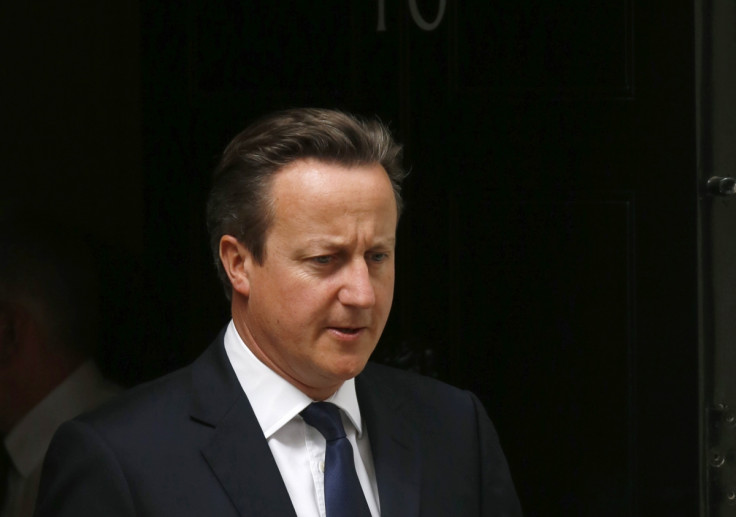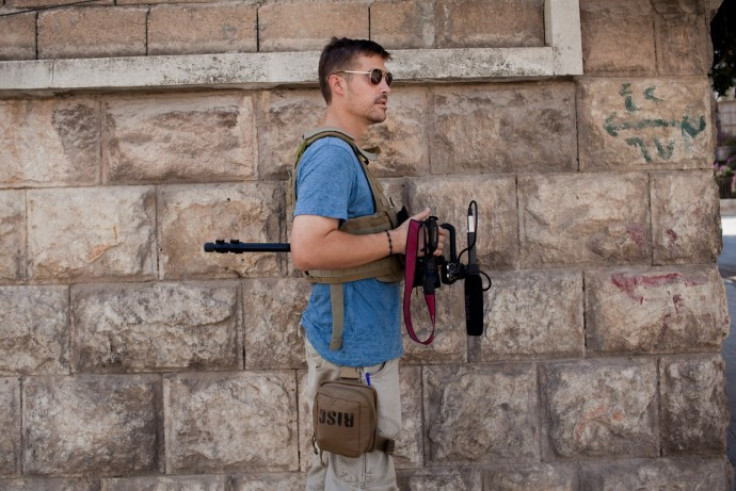Cameron Resumes Holiday and Warns Against 'Knee-Jerk' Reaction to Foley Murder

David Cameron's decision to resume his family holiday in Cornwall the day after rushing back to Downing Street to coordinate reaction to the murder of James Foley is not the insensitive, thoughtless move his critics are claiming.
Quite the opposite. The decision is a calculated move to send out what the prime minister believes is the correct signal about the UK's response and avoiding the "knee-jerk" reactions he has cautioned against.
"This is not the time for knee-jerk reaction, it is time for what Britain always shows in these circumstances and that is resolve. We have defeated terrorism, extremism, threats to our country before and we will defeat them again if we show that resolve, but also patience," he said.
It may be a judgement open to criticism from those either urging tougher military action against Isis (also known as Islamic State), and whose voices have got louder after the latest atrocity, or those on the other end of the spectrum seeking to tie the prime minister's hands.
But it is a deliberate attempt to pitch the UK's reaction at what Cameron clearly believes is the only credible, proportionate and realistic level.

As foreign secretary Phillip Hammond said on Wednesday, the shocking video did not actually change anything in relation to the government's understanding of the problem posed both abroad and at home by jihadist murderers.
Neither did it fundamentally alter the way the UK will attempt to deal with the crisis, whatever actions some may be calling for.
Cameron, and Tony Blair before him, have long warned of the dangers of the radicalisation of Muslims in the UK and the long-term threat posed by IS militants in the Iraq/Syria region.
They have both talked of a "generational struggle" which will rely more on combatting the ideology than bombing jihadists into submission.
And in any case, as last year's Commons vote rejecting military action against Syria proved, there is virtually no chance that the UK will be drawn into another ground war in the region, even if it was thought that would have the desired effect, which history shows it would not.
It is for these same reasons that the prime minister continues to resist a recall of parliament but, at the moment, is simply planning a full statement to update MPs when parliament resumes at the beginning of next month.
Meanwhile, the security services' efforts will be directed towards identifying the murderer and the so-called "Beatles" band of UK jihadists operating in the region, which they hope to succeed in doing.
Although what action can be taken once they have been identified remains an open question.
And minsters will continue to drive through legislation intended to combat radicalisation of Muslims in the UK, prevent individuals travelling to Syria and Iraq to join jihadists and then stop them from returning the the UK to pursue their campaign here.
Cameron said that would include taking away passports, arresting and prosecuting those who take part in extremism and violence and taking extremist material off the internet
There are an estimated 500 Britons believed to be operating in the region and are reportedly some of the most vicious and brutal of the fighters, suggesting the campaign is attracting individuals with particular psychological characteristics and vulnerabilities.
And this must be where the real "war" must be engaged – in dealing with what Cameron has branded the "poisonous" and warped ideology that attracts individuals into joining terrorist groups in the first place.
© Copyright IBTimes 2024. All rights reserved.






